Celery is an excellent source of vitamins and minerals that chickens need to be healthy. But can chickens eat celery safely? The answer is yes, with some caveats.
Celery has many nutritional benefits for chickens. It’s a good source of vitamin C, potassium, calcium, and other essential vitamins and minerals. Because of its high water content, celery can also help keep your chickens hydrated in hot weather. As with any food item, moderation is key when feeding celery to your chickens. Too much celery can lead to an upset stomach or even more serious health problems like crop impaction or gout.
In this blog post, we’ll take a closer look at whether or not celery is safe for chickens and how you should feed it.
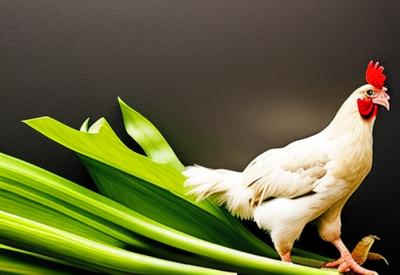
Can chickens eat celery?
Yes, chickens can eat celery. Celery is an excellent source of vitamins and minerals that chickens need to be healthy. As long as it’s fed in moderation, celery can provide your flock with an excellent source of nutrition.
Unfortunately, most chickens will not appreciate the taste of celery. If you want to give them some as part of their diet, they will likely eat it if it’s mixed in with their feed or offered as a treat. That said, many chickens won’t even touch it if they don’t like the taste.
Be sure to feed your flock only small amounts of celery at a time and monitor them closely for any signs of distress after eating it. Additionally, you should always ensure that the celery you feed your chickens is free from pesticides or other contaminants before offering it to them.
[ChickenAffiliate]
The benefits of eating celery for chickens
If you’re looking for a way to keep your chickens healthy and happy, then adding celery to their diet may be the answer. Celery is a nutritious snack that can help provide your chickens with all sorts of essential vitamins, minerals, and other benefits. Let’s look at five great reasons you should feed your chickens celery.
Full of Essential Nutrients
Celery is an excellent source of vitamins A, B, C, and K, as well as calcium, magnesium, phosphorus, and potassium. All of these nutrients are essential for healthy chicken growth and development.
The high fiber content in celery also helps aid digestion and reduce the chances of digestive issues or constipation.
Keeps Chickens Hydrated
The high water content in celery can help keep your chickens hydrated on hot days when they don’t have access to many water sources.
Celery is also a great source of electrolytes, which can help your flock stay energized and healthy during stressful times.
Improves Egg Production
Eating celery can help improve egg production by keeping hens healthier overall. This is because the fiber in celery helps them produce more eggs due to increased energy levels from the extra nutrition they get from eating it.
Furthermore, its diuretic properties mean that it can also help flush out toxins from the body, further improving egg production rates.
Good Source of Fiber
As mentioned earlier, celery is full of dietary fiber, which helps with digestion and aids weight loss since it makes your chickens feel fuller faster, so they don’t overeat.
It also helps reduce cholesterol levels since it binds with bile acids in the intestines and prevents them from being absorbed into the bloodstream before the body’s natural processes use them up.
Packed With Antioxidants
Celery contains antioxidants like flavonoids that protect cells against damage caused by oxidation which often leads to premature aging or other health issues in chickens.
Antioxidants also boost immunity against infections, so eating this crunchy snack could prevent some diseases from occurring later down the line.
Things to watch out for when feeding celery to chickens
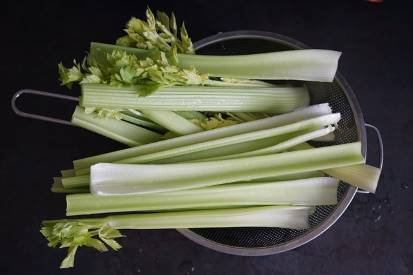
There are a few things you should keep in mind when feeding celery to your flock. In this blog post, we’ll discuss three things you should watch out for when feeding celery to your chickens.
Chop Into Small Pieces
The first thing you need to do before feeding celery to your chickens is chop it into small pieces. Large chunks of celery can be difficult for your chickens to eat and digest, so it’s essential to cut the celery into smaller pieces before offering it as a snack.
This will ensure that your chickens get the most out of their snack and help prevent digestive issues.
Make Sure It Is Fresh
The second thing you should watch out for when feeding celery to your chickens is making sure it is fresh. Celery has a relatively short shelf life and can spoil quickly, so make sure the celery you’re giving them is still good before offering it up as a snack.
If the celery looks wilted or discolored, throw it away instead of giving it to your flock.
Feed In Moderation
The third thing you should watch out for when feeding celery to your chickens is not overfeeding them with it. Celery is high in sugar, so too much can cause digestive issues or lead to unhealthy weight gain in your birds.
Offer up small amounts of chopped-up celery as a treat every once in a while, but don’t make it a regular part of their diet.
How often should chickens eat celery?
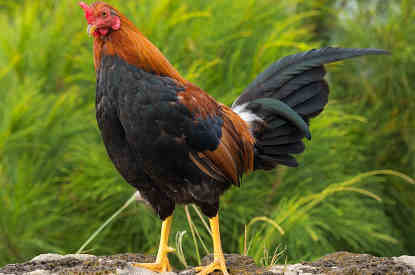
When it comes to feeding chickens celery, moderation is key. It should only be included in their diet as a treat, no more than 10% of their overall diet overall.
If you choose to feed them celery, make sure you alternate it with other vegetables and never give your chickens celery daily. This way, they get the variety they need while still being able to enjoy treats like celery in moderation.
How to prepare celery for feeding to chickens
Celery is an excellent snack for chickens, packed with essential vitamins and minerals. But preparing celery for feeding to chickens can be a bit tricky. In this blog post, we’ll provide some simple tips on properly preparing celery for your chickens.
Check If It’s Fresh
Before you even think about preparing celery for your chickens, make sure that the celery you are using is fresh. Look for crisp stalks with bright-green leaves, no spots or blemishes, and no wilting.
You want to ensure that the celery you give your chickens is of the highest quality, so they get all its nutritional benefits.
Wash First
After making sure that your celery is fresh, it’s time to wash it before feeding it to your chickens. Just like with any other food item, you want to ensure that the celery is cleaned thoroughly and free from dirt and debris before giving it to your chickens.
This will ensure that their digestive systems remain healthy and free from contaminants.
Chop Into Small Pieces
Once you have washed the celery thoroughly, it’s time to chop it into small pieces for easier consumption by your chickens. Make sure that the pieces are small enough so that they don’t pose a choking hazard but still large enough so they can enjoy every bite of their delicious snack.
This will also help them digest their food more efficiently as well as help them get all of the essential nutrients from this tasty treat.
Add To Their Feed If Required
Finally, if your chickens can’t stand the taste, add some of this chopped celery into their regular feed mix to boost their nutrition. This will ensure that they get all the vitamins and minerals they need without relying solely on store-bought feed mixes.
Additionally, adding fresh vegetables like celery can help keep their digestive systems running smoothly and reduce problems such as diarrhea or constipation caused by poor diet choices or overfeeding.
Can baby chickens eat celery?
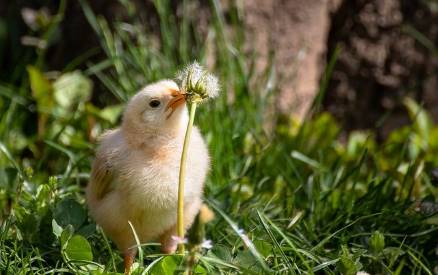
Baby chickens can safely eat celery, but it is best to wait until they are at least six weeks old. When introducing celery as a treat, it is vital to start with small amounts and feed it in moderation.
Celery has many health benefits for baby chickens, as it is full of fiber, vitamins, and minerals and is a great hydration source. Even though celery can benefit their overall health and development, chicks should only consume a little of it to keep the balance for other nutrients.
Can Chickens Eat Celery Leaves?
Celery leaves are an excellent treat for chickens, as they are nutritious and fun to eat. Your chickens will love scratching around in piles of celery leaves, much like they do with other vegetation.
However, it is important to pay close attention when feeding your chickens celery leaves since they often come into contact with pesticides that can harm birds. Be sure to rinse the celery leaves off well before offering them to your chickens, and ensure that only organic produce is fed if you want maximum safety.
Celery leaves offer many nutritional perks to chickens and can be a regular part of their diet when proper precautions are taken.
Can chickens eat celeriac?
Celeriac is the root portion of the celery plant, and chickens can eat it, although it may not be their favorite. Celeriac has a slightly bitter taste compared to regular celery but still contains many of the same vitamins and minerals.
Celeriac is an excellent food source for chickens, packed with essential vitamins and minerals. It can be served fresh to your flock as long as it is chopped into smaller pieces to make them easier to eat.
Celeriac offers various nutrients, including vitamin C, phosphorous, potassium, and other minerals. You can feel confident serving celeriac to your chickens, knowing that it’s safe for them to consume and will provide them with the necessary nourishment.
What other vegetables can chickens eat?
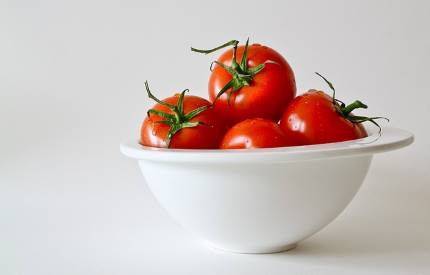
Celery is a common food for chickens, but did you know there are plenty of other vegetables that chickens can enjoy? Not only do these vegetables provide variety to your chicken’s diet, but they also offer essential vitamins and minerals. Let’s take a look at the best vegetables to feed your chickens.
Tomatoes
Tomatoes are a great source of Vitamins A and C, which help promote healthy eyesight and boost immunity. You can give your chickens tomatoes in either raw or cooked form.
Remember that if you choose to feed your chicken cooked tomatoes, don’t use oil or spices as this could harm them.
Read More: Can Chickens Eat Tomatoes? 5 Essential Things To Know
Cucumbers
Cucumbers are an excellent snack for chickens because they contain lots of water and electrolytes. Just make sure you cut the cucumber into small pieces, so it’s easier for them to eat and digest.
Remember that cucumbers should not be given as a main meal for your chickens since they lack essential nutrients like protein and calcium.
Read More: Can Chickens Eat Cucumber? 6 Amazing Benefits
Bell Peppers
Bell peppers are full of Vitamin C, which will help keep your chickens healthy. Bell peppers can be fed raw or cooked but avoid adding any seasoning or oils to the pepper before giving it to your birds, as this could harm their sensitive digestive systems.
It is also important to note that bell peppers are high in sugar, so it is best not to feed them too often.
Read More: Can Chickens Eat Bell Peppers? 4 Important Benefits
Radishes
Radishes are a tasty treat for chickens. They contain vitamin C and other antioxidants, which makes them a nutritious snack. You should cut radishes into small pieces before feeding them to your chicken since they can be difficult to digest.
As with all vegetables, radishes should only be given occasionally as part of a balanced diet that includes plenty of protein-rich foods such as grains, bugs, etc.
Read More: Can Chickens Eat Radishes? 6 Awesome Benefits
Beets
Beets are another vegetable that can occasionally appear in your chicken’s diet. However, because they contain sugar and carbohydrates, it is best to feed them infrequently, or it may lead to weight gain or other health issues over time.
Like all vegetables, beets should only ever make up part of their overall diet rather than replacing more nutritious foods like grain mixes or bugs/worms.
Read More: Can Chickens Eat Beets? 5 Excellent Benefits
Can chickens eat celery – final thoughts
Celery can be a nutritious treat for your flock if given in moderation and monitored carefully for any signs of distress after eating it. If you’re looking for ways to provide important nutrients to your hens while still giving them something they enjoy eating, then adding small quantities of celery might be the answer.
Remember: moderation is key – too much celery could risk your flock’s health.
